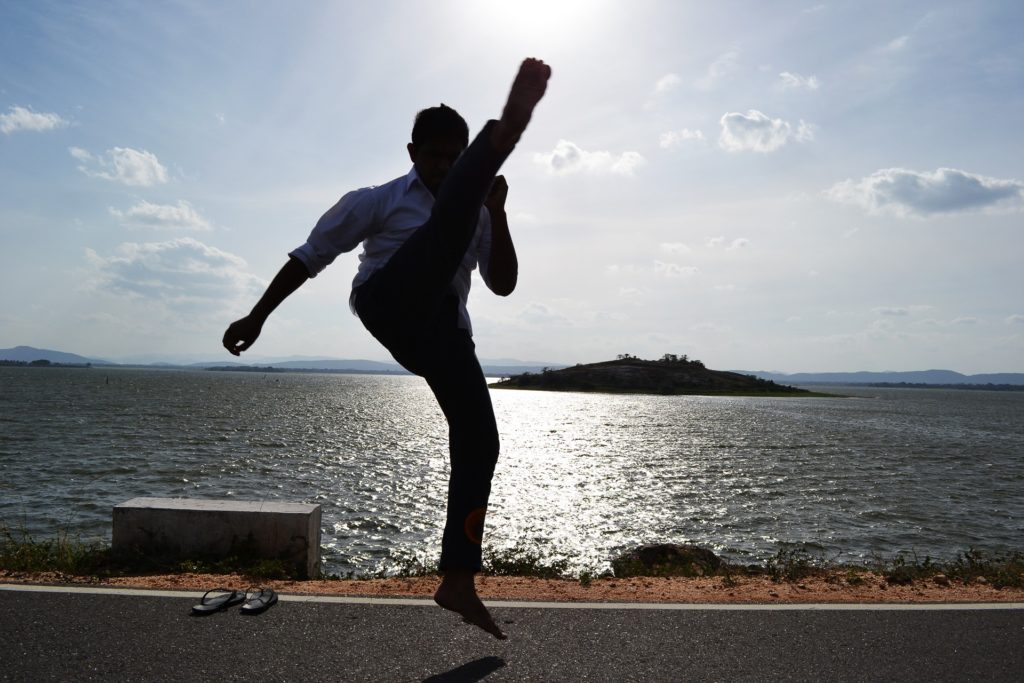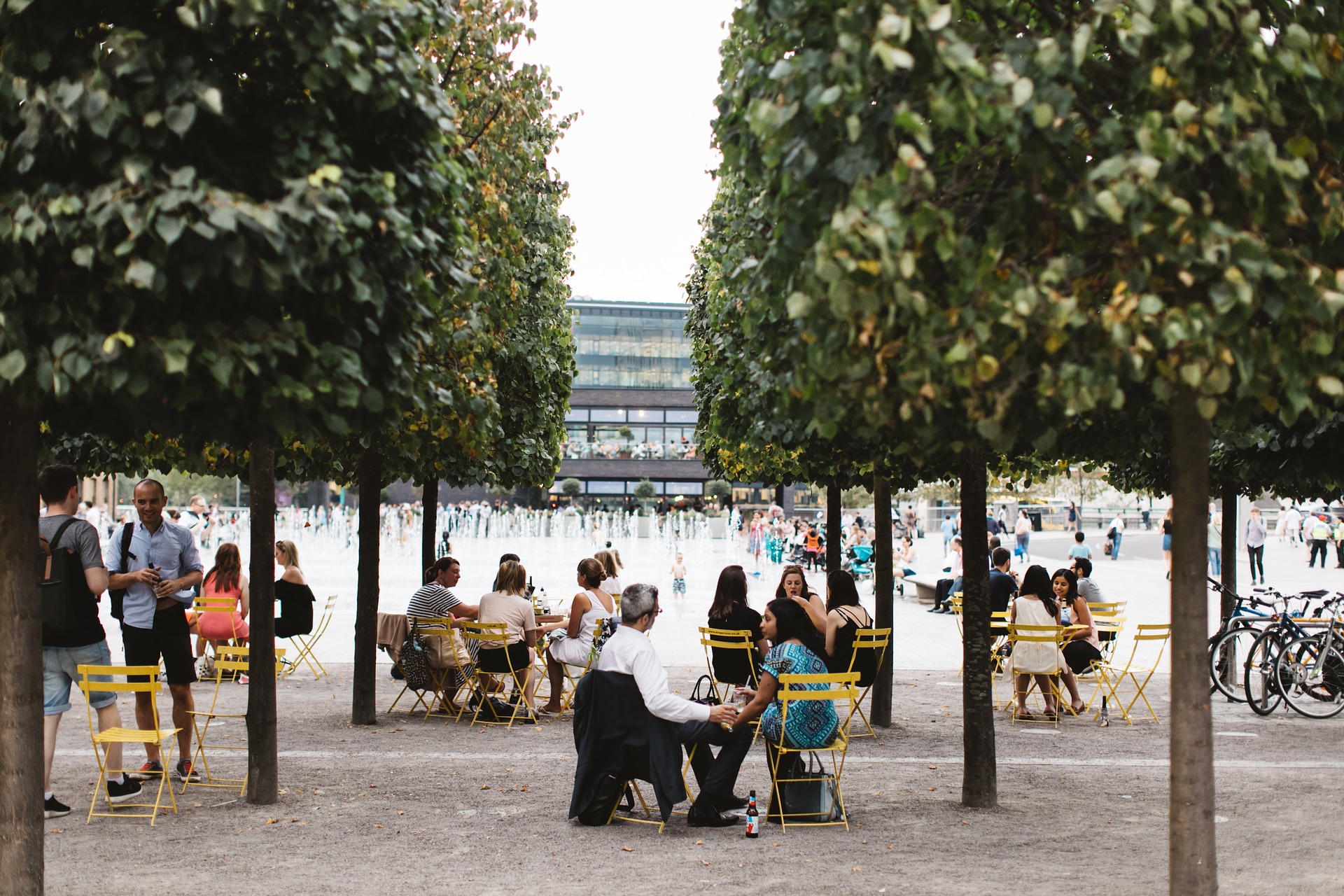I’ve never been particularly comfortable or functional in groups. People tell me they see me as sociable, but frankly, it’s exhausting for me—a dance that I perform to fit in. Once I’m alone again, I often feel depleted.
At least, that used to be how it worked. This began to change in 2019 when I decided to join some online communities and see if I could adapt and grow more comfortable in groups. Though it’s been awkward at times, the journey has been a success.
The main thing I’ve learned is that we can develop skills that enable us to be part of online communities in ways that nourish us as individuals while also bringing value to communities in turn. These skills can be applied both intrapersonally and interpersonally. Whether you apply them internally or externally, they’re essentially the same skills.
Making the Right Adaptations
Before I explain the skills, however, let me reflect on what we are.
We are autopoietic—self-generating and self-regulating beings made up of physical, cognitive, emotional, energetic, spiritual, and social elements. Our consciousness and cognition are embodied, and our embodied selves are embedded in our environment. To survive in these environments, we are by nature highly adaptive. This allows us to self-regulate within environments that are complex and often outside of our control.

The problem is that sometimes, in making these adaptions, we deceive ourselves about what we’re really doing and why. Such self-deceiving adaptations put us increasingly at odds with ourselves and the environment.
At other times, however, our adaptations enable us to transcend ourselves. These are the adaptations that help us grow and evolve, developing our character and values.
To survive in these environments, we are by nature highly adaptive. The problem is that sometimes, in making adaptions, we deceive ourselves about what we’re really doing and why.
The key to being comfortable in groups, for me, was to develop skills that pointed toward self-transcendence and away from self-deception. Allow me to highlight the most important skills I’ve found.
Active Listening
“Maybe you’re just not prepared to take advice on this?”
“Of course I am!” I felt the surge of energy best described as embarrassment rising in my body. As I listened to the enquiry in her tone and felt the sensation in my body, I had a realisation. Leading up to this moment, I’d thought she was telling me I was wrong, when in fact, she was just offering a different perspective. By tuning into her tone, and to the sensations in my body, I was able to really listen to her—and to myself. Once I did that, I could move away from being defensive and receive what was on offer.
★
The first of the skills I’ve learned is active listening. This is where you make a conscious effort to understand not only the words that another person is saying but, more importantly, the complete message they’re communicating. This is more easily done in person or when using tools like Zoom, where tone of voice and non-verbal cues such as body language convey meaning. In text-based communication such as Twitter, this skill is more about pausing and noting your own sensations and emotions before responding.
Active listening—both to ourselves and others—tunes us into what feels true, even when it is uncomfortable. It facilitates discernment and affords us the ability to make sense of subtle, vague, or weird signals, whether the source is internal or external.
Active listening begins in the body. We start by paying attention to what our bodies are telling us. By grounding in the physical, we position ourselves to stay connected to our conversation partner instead of running away into our own minds. We do this most effectively when we use all of our senses—our whole bodies—to note meaning. From this grounded space, we integrate our thoughts, sensations, emotions, and intuitions. We make them coherent, instead of letting them all pull us in different directions.
By grounding in the physical, we position ourselves to stay connected to our conversation partner instead of running away into our own minds.
I’ve found that mindfulness practices such as conscious breathing and body scanning really helps me tune into myself. When working with others, a simple breathing practice can help us regulate excitement, take a more objective position, and shift into a receptive and reflective space.
As I practice active listening, my ego becomes quieter. It enables me to step into a more objective space where I can hold different perspectives, reflecting on what is happening within myself and in my interactions with others.
Opening to Enquiry and Discovery
The definition of insanity is doing the same thing over and over again and expecting a different result.
—Narcotics Anonymous, often misattributed to Einstein
I have trained in martial arts since I was a child. The learning journey is intense and often painful. I used to train with this one guy who beat me every time that we sparred—and often in the same way. But I couldn’t see it. I wasn’t prepared to admit that my technique needed improving—that it might just be wrong. Mentally rigid and unable to see a different path, I would enter each training session expecting a different outcome.

Then, one day, he was generous enough to suggest I pay attention to how he was moving his feet. Suddenly, I saw how he was beating me.
That shift in mindset took me to a new level in martial arts. It wasn’t just that I’d learned a new move: the real shift was that from that point, I entered each session with the intent to learn, to grow, to be better, and to let go of what I thought I knew.
★
To participate in enquiry and discovery, you start by letting go of being right. When we are truly open to being wrong—to making mistakes, and to accepting the same from others—we can act with discernment but without negative emotional activation. I for one am my own worst critic. Allowing myself to be wrong without being punitive has been liberating—an act of loving kindness toward myself. This in turn transforms how I feel about others when I think they are mistaken about something. It’s led me to feel energised in groups instead of exhausted by them.
Allowing myself to be wrong without being punitive has been liberating. This in turn transforms how I feel about others when I think they are mistaken about something.
Moreover, an attitude of “I’ll give it a go and maybe get it wrong” with an invitation to others to respond goes a long way in developing collaboration and coherence. As we become more willing to fail, we also increase agency and creativity—and, paradoxically, improve our odds for success.
Taking Responsibility for Feelings
A few months ago, I had an argument with my partner. I felt attacked and angry about what she had said. I kept replaying the story of what had happened in my head—and so the anger remained.
At the time I was reading Everything is Workable: A Zen Approach to Conflict Resolution* by meditator and conflict resolution specialist Diane Musho Hamilton. In line with the book’s guidance, I decided to try the practice of taking responsibility for strong feelings. I lay on the floor, keeping my breathing steady. Then I let go of the story I’d been repeating to myself and actively listened to my feelings.
It was not comfortable. My body shook. I cried. I had the sensation of electric shocks running through my arms and legs. But the anger became a message: I felt unheard, and I had something important to offer.
After that exercise, I was able to collect myself and calmly explain how I felt and what I had to offer. What’s more, when I was in that state, she was able to hear me.
★
It may sound obvious that we should be willing and able to respond to our own feelings. Many of us, however, avoid feelings that overwhelm us. When we practice actively allowing ourselves to feel those feelings, we develop our capacity to respond to others the same way.
I found the work of Diane Musho Hamilton’s work really helpful in developing this particular quality. Consider this passage from Everything is Workable:
When we feel threatened, the bodily sensations are certainly intense but also exciting. In other words, our nervous system and all other bodily systems are activated, and energy courses through us. […] Everything in us is designed to make it stop. So the challenge is to slow down, give the feelings space, stay present, and feel the upsurge of energy in our body. (37)
In a community, the ability to take responsibility for our feelings is vital. It empowers us to listen and respond in ways that add value. That’s meaningful participation, and it increases our sense of belonging and agency. Our collaboration becomes more fluid and coherent, our insights rise to the surface, and we learn, create, and make meaning together.
In a community, the ability to take responsibility for our feelings is vital. It empowers us to listen and respond in ways that add value, thereby participating in meaningful ways and increasing our sense of belonging and agency.
Separating Signal From Noise
Imagine that you have a tune in your head that you’re struggling to express. You hum the tune to a friend. They listen carefully and skillfully hum back what they think you are expressing. As you listen to your friend, you have that ah-ha! moment. “That’s almost it!” you say before you hum it back again—this time even closer than ever to the exact melody you’re going for.
Conversation works the same way. Skillful self-expression involves calmly finding the right words and images to express what is inside of us. It starts with the skills I’ve already described. This skill adds the insight into our thoughts that we gain when others give us feedback.

As we build skill in expressing ourselves, we increase both the clarity of our message and the fidelity to our meaning. When we add in awareness of and responsibility for our own feelings, we can be increasingly honest. This honesty helps us to identify our values and then live through them, which in turn builds our character. This is the signal that we want to separate from all the noise of our previously unregulated emotions.
Honesty helps us to identify our values and then live through them, which in turn builds our character.
If all parties in an exchange can skillfully express themselves, the group creates a positive feedback loop. In this way, clarity can continue to increase. As the signal passes back and forth between us, we help each other separate the signal from the noise. At the same time, we gain personal and shared insight, and create meaning and value.
From Artifice to Authenticity
Being true to ourselves is not a permanent state. The more often we are authentic, however, the more we become in tune with ourselves and the world. Where we were self-deceiving, we become self-transcending.
Seeking truth over confirmation requires all of the skills I described above. We need to be able to be wrong and accept that others almost always have value to contribute even if we don’t agree with their views. In addition, we must be able to self-regulate and self-reflect so that we can recognize when we’re engaged in self-deception. We must seek truth instead of confirmation.
Finally, we must be true to our values as we understand them now, while allowing our understanding of them to unfold over time.
Contributing to Healthy Communities
We are complex sensing beings in complex environments, seeking the signals amongst the noise to create meaning and belonging. We cannot do this alone: none of us have the capacity to make sense of the world by ourselves. This is a joint endeavour.
Healthy communities have always been vital to our individual well-being and collective good. By “healthy,” I mean the communities that create meaning, value, and belonging while nurturing agency and autonomy. We have a responsibility to ourselves and to each other to develop the skills that will allow us to thrive in such communities. The skills I have presented here have helped me to do this. I hope they will be equally helpful to you.
Header image courtesy of stephriddell from Pixabay.
*We earn a small commission if you purchase from Amazon through a link from our site.




